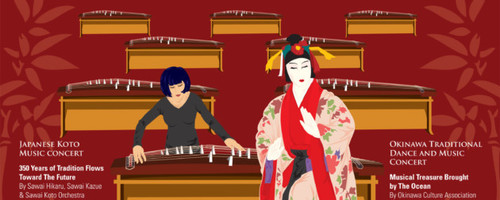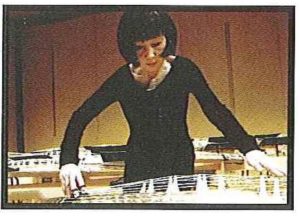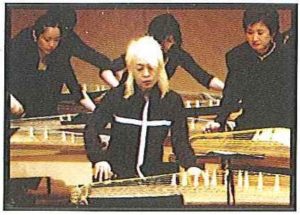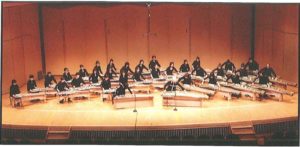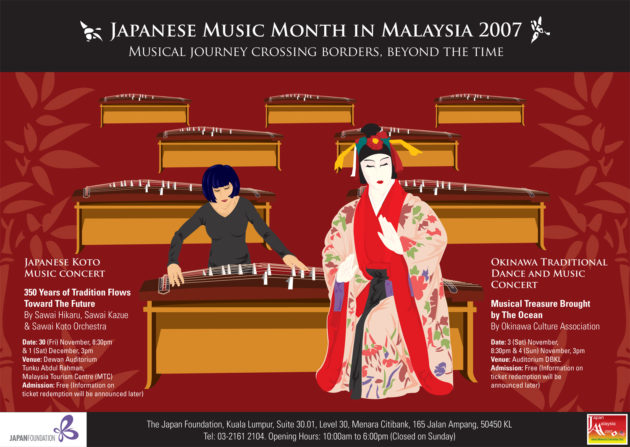Japanese Music Month in Malaysia 2007
?Musical journey crossing borders, beyond the time?
Japanese KOTO Music concert
? 350 Years of Tradition Flows toward the Future
by Sawai Hikaru, Sawai Kazue & Sawai Koto Orchestra
It was about 350 years ago when the master YATSUHASHI KENGYO innovated totally different music using KOTO. Before he came up, KOTO had been used as a minor instrument for a long period of time since it came over to Japan from China about 1500 years ago.
After the ?musical revolution? triggered by master YATSUHASHI, KOTO became a very important and indispensable instrument in Japanese music. Many musicians have composed and played KOTO music with putting new elements and different ideas on it until now. Classical masterpieces are still admired as Japanese traditional music and at the same time many contemporary pieces using KOTO attract the heart of music fans not only in Japan but also all over the world.
In this KOTO music concert, the best KOTO ensemble in Japan, ?Sawai Koto Orchestra?, with SAWAI Kazue and Hikaru will play classical masterpieces as well as contemporary pieces. You will be overwhelmed at the dynamic sound created by more than 10 KOTOs on the stage and amused with the subtle and elegant sound.
Date: 30 (Fri) November, 8:30pm & 1 (Sat) December, 3pm
Venue: Dewan Auditorium Tunku Abdul Rahman, Malaysia Tourism Centre (MTC)
Admission: FREE
Walk-in Tickets are available on the day of the performance. The ticket redemption starts one (1) hour before the show at each venue.
*Number of Walk-in Tickets available is limited
**The ticket redemption is on first-come, first-served basis
***Preschoolers are not allowed to the show
Organized by
? Sawai Sokyoku-in (Sawai Koto Academy of Music)
? The Japan Foundation Kuala Lumpur (JFKL)
? Embassy of Japan in Malaysia
Supported by
? Hotel Nikko Kuala Lumpur


